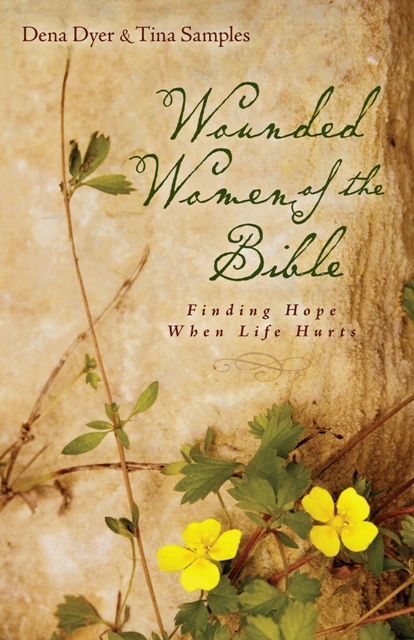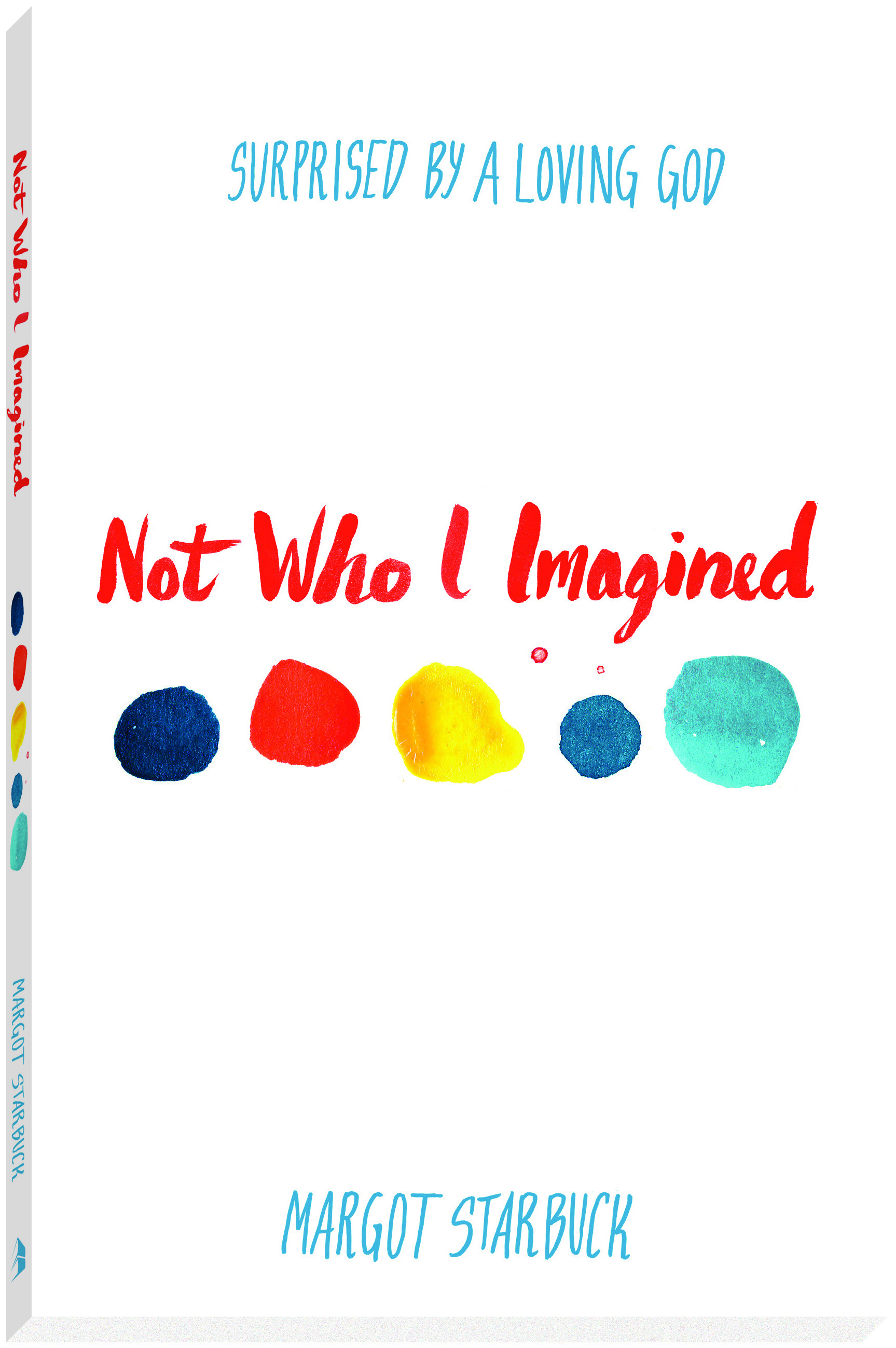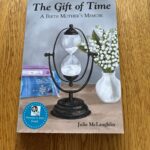 Today I’m happy to be interviewing Tina Samples, co-author of Wounded Women of the Bible: Finding Hope When Life Hurts. In her book, Tina and co-author Dena Dyer share stories of hope from both the Bible and real life, which I think will encourage many of you. Tina is a Colorado-based writer, speaker, and worship leader, who serves alongside her husband Dave, the pastor of Grace River Church in Windsor, Colorado.
Today I’m happy to be interviewing Tina Samples, co-author of Wounded Women of the Bible: Finding Hope When Life Hurts. In her book, Tina and co-author Dena Dyer share stories of hope from both the Bible and real life, which I think will encourage many of you. Tina is a Colorado-based writer, speaker, and worship leader, who serves alongside her husband Dave, the pastor of Grace River Church in Windsor, Colorado.
Linda: Tina, tell me what prompted the writing of this book?
Tina: As a pastor’s wife, I minister to many hurting and wounded women. I started meeting with four women who were having extreme difficulties in their marriage. After our first meeting, I left wishing there was some kind of study I could use to help these women through their crises and suffering. A few days later I awoke with my name being called. “Tina!” The clock read 3:00am. Thinking perhaps my son was calling for me, I listened. But I did not hear my son. Instead, I heard, “Tina, women in the Bible who have been wounded.” I asked the Lord if I should write about that and in my spirit heard him say yes. I then began the process of researching women in the Bible who were wounded. I had no idea the project would turn into anything more. Later on, I realized this project was bigger than me and asked my wonderful friend Dena Dyer, if she would like to help write the book. I’m so glad she agreed.
Linda: The premise of Wounded Women of the Bible is that women today are not alone: women all around them, and women in the past (in the Bible), have experienced the same difficulties. What are some of the stories from Wounded Women of the Bible?
Tina: As we look through the Bible, particularly the Old Testament, we find many women who experienced deep pain in a variety of ways. In Wounded Women of the Bible, we look at these women’s lives. We touch on the two women in Solomon’s court and the battle of betraying a friend. We take a look at Abigail who seemed to have it all, yet behind closed doors lived with a mean and surly man. The readers will hear the desperation from the widow of Zarephath who struggled to make it through a famine. They will read about Jephthah and the wounding a father can place on their daughters. This book touches on wounded relationships and women who suffered through infertility. We read Jochebed’s story of having to release a child. And then there is Dinah who was sexually violated. Women will be able to relate to so many women in this book because we’ve been through it ourselves.
Dena did a wonderful job interviewing women in today’s world who experienced similar wounds as the biblical women. Modern day women share their own stories of healing. Women will come away with a greater understanding that they are not alone in their quest to find freedom.
Linda: Along those lines, what are some of the stories from your own past that are used in the book?
Tina: I grew up in poverty. My father stumbled into a life of crime early on in his life. He was a non-believer and my mother was a believer. Through my mother’s influence, we came to know Christ. I share about my own sexual abuse as a child and how God helped me find forgiveness and freedom. I share about a great loss. My brother’s murder was horrific and difficult to overcome.
Dena also shares some of her own personal stories, struggles, wounds, and how God helped her walk through them. The book was difficult at times to write, yet cathartic and healing all at the same time.
Linda: What do readers need to keep in mind when reading Wounded Women of the Bible?
Tina: This book is meant to open eyes and bring insight to how biblical women faced similar wounds that we go through. Our prayer has been that through this book, women will come to face their own hidden wounds and find freedom once and for all. It’s easy for women to cover their pain and past wounds with a band aide, but God wants to take off these superficial fixes and bind the wound in His way. Psalm 147 says, “He heals the brokenhearted and binds up their wounds.” The word binding means to wrap like a turban. Think of a cast. When someone has a broken leg, the doctor casts it so the break can heal. The Lord wants to do the same with our wounds. God wants to wrap them with His healing balm. The balm comes in the form of His words, scripture, Bible passages, walking with us while we work through our hurts, allowing God to love us through them, and receiving His help. We just need to allow God to rip away the band aide we’ve placed on the wound so He can truly heal what’s beneath.
Linda: Pain can be felt in so many ways: the death of a loved one, divorce, infertility, etc. How can one person’s pain help another person if they did not experience the same thing?
Tina: We may not be able to relate to every person’s story but there is one thing we can relate to: the wound. I’ve never met a woman who hasn’t been wounded in some way or another. We can empathize with others by reminding ourselves of the pain we once experienced and how God brought us through that situation. Pain is pain. We can choose to walk through life with other hurting women. So often we have a difficult time doing that due to our own wounds. But when we find freedom – we have the power to minister in ways we never dreamed possible.
Linda: On your webpage, you have something called the “Wounded Women Pledge.” I have a feeling there might be a story behind this. Can you tell us the reason for this?”
Tina: At our previous church, I was wounded by someone close to me. As the pastor’s wife, I found that many women had a difficult time reaching out to me. Many of my friends turned away. I felt abandoned and alone. For some reason women often have a difficult time walking with other hurting women. We judge and turn away too easily. Perhaps the wound gets a little too close to the woman who never fully dealt with her own wound. I’ve heard sad stories from women losing longtime friends because they divorced due to abusive relationships or from infidelity. Those women could not walk with them through their grief or through God restoring them due to sin. It truly is time to stand up and walk with one another as Christ would have done for us had He been here in the flesh – and continues to do in the Spirit. I encourage readers to take the pledge and decide to walk with wounded and hurting women.”
Linda: What are one or two major points that you would like your readers to take away?
Tina: God is never far away and though it may feel like it, He never gives up on us. His passion is to bring hope and healing into our lives so that we can live life abundantly. There is hope. We never walk alone. Freedom awaits. We just meed to step into it.
I also want readers to find out about other ways to minister to hurting women by taking the Wounded Women Pledge to walk with wounded and hurting women. Also, they can connect with Blogs for the Healing on my webpage @ www.tinasamples.com.
Linda: Where can we find out more about your book?
Tina: You can find Wounded Women of the Bible on Amazon,






